
It was quite a week in Alexandria.
It seems that nearly all of Monday’s news was overshadowed by the eclipse. Hundreds of bespectacled residents turned out at Ben Brenaman Park to witness the cosmic event.
Out top story this week was on the four-year-old autistic student at Jefferson-Houston Elementary School who walked away from the school and was found barefoot in a tunnel near the King Street Metro station. The head of school and academic principal were subsequently placed on administrative leave, and the child’s mother told us that she was thankful for her daughter’s safe return, but that she won’t be returning her to Jefferson-Houston.
On Tuesday, we also reported about a new seven-story residential development proposal in the Landmark area. A developer filed a permit to redevelop 6101 and 6125 Stevenson Avenue, which is currently an office building and parking lot, into a seven-story residential apartment building with 270 units, a 340-space parking garage and amenity space.
City Council has a full docket at their meeting this Saturday, and will vote on raising fees for ambulances, stormwater utilities and late car tax payments. Council will also consider the proposed residential redevelopment of the Vulcan Materials site in the West End.
The most-read stories this week were:
- Jefferson-Houston Elementary School administrators put on leave after autistic 4-year-old walked away from school (14934 views)
- Notes: City cancels eclipse viewing party in Old Town, but there’s another party at Ben Brenman Park (12016 views)
- JUST IN: 23-year-old Alexandria motorcyclist identified after fatal crash on Duke Street (9870 views)
- Motorcyclist dies after crash with DASH bus on Duke Street (6063 views)
- New seven-story residential development pitched for Landmark neighborhood (4766 views)
- Amazon Fresh in the Potomac Yard Shopping Center is still happening (4676 views)
- Police: Man released after getting stuck in harness on Seminary Road Bridge over I-395 (4258 views)
- Alexandria man charged with forcible sodomy and attempted rape in Old Town (3519 views)
- Del Ray bar Hops N Shine wants live outdoor music 10+ hours a day (3201 views)
- Alexandria’s Planet Fitness evacuated after emailed bomb threat (2930 views)
Have a safe weekend!
A motorcyclist is dead after crashing into a DASH Bus early this evening on Duke Street in Alexandria’s Landmark area.
A DASH bus driver announced via dispatch that the crash occurred at 5:07 p.m. He reported that the motorcyclist was speeding past the bus as it was turning onto N. Ripley Street.
The bus driver reported via dispatch that the motorcyclist was not moving. Minutes later, the motorcyclist was declared dead at the scene.
Duke Street from Paxton to South Walker Streets has been closed for several hours as the Alexandria Police Department’s crash reconstruction unit is investigating the incident.
The identity of the motorcyclist has not been released.
Traffic alert: Both directions of Duke at Paxton & Duke at Walker are shut down due to a fatal crash involving a motorcyclist and a bus. No injuries reported related to the bus. Investigators will be on-scene for several hours.
— Alexandria Police (@AlexandriaVAPD) April 9, 2024
⚠️Service Alert: Due to police activity, both directions of Duke St from Paxton to S. Walker are currently shut down. Bus Lines 30 & 32 are on detour and Line 35 is experiencing delays. For more information, visit https://t.co/9QRbAJaPLE⚠️
— DASH Bus (@DASHBus) April 10, 2024
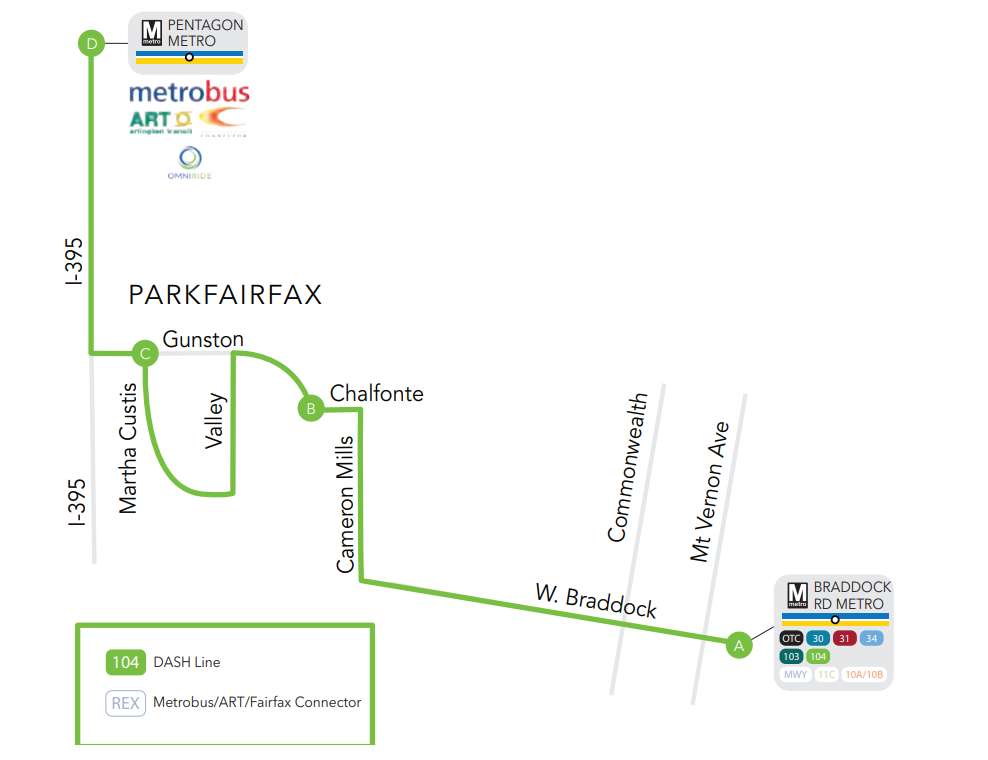
Rosemont, Parkfairfax, and North Ridge residents could get the short end of the stick as DASH looks to scale back bus service in those neighborhoods.
A memo from Martin Barna, director of Planning and Scheduling for DASH, said the city’s bus system could reduce service on Line 104. Barna wrote that the change is based on the City Manager’s Draft FY 2025 budget.
Line 104 runs from the Braddock Road Metro station to the Pentagon Metro station.
Service would be reduced on Line 104 from every 30 minutes to once every hour. Barna said the change is likely to significantly decrease ridership.
According to the memo:
This reduction would reduce annual operating costs by $180,000, but would have an adverse impact on commuters in Parkfairfax, North Ridge and Rosemont. It also runs counter to the goals and recommendations of the 2022 Alexandria Transit Vision (ATV) Plan and Alexandria Mobility Plan (AMP). In general, fixed-route bus service that only runs once every 60 minutes is not considered to be useful or reliable, and ridership is likely to decrease by a large margin as riders seek other alternatives.
At the same time, there are other potential service improvements included in the memo, though they’re considered unfunded improvements:
- Line 32 – DASH is proposing to improve midday, evening and weekend headways from every 60 minutes to every 30 minutes.
- Line 34 – DASH is proposing to improve Sunday headways from every 60 minutes to every 30 minutes.
- Line 31 – DASH is proposing to improve midday, evening and weekend headways between King Street Metro and Braddock Road from every 30 minutes to every 15 minutes by extending all Line 31 short trips that currently operate between NVCC-Alexandria and the King Street Metro.
The changes are scheduled for review at the Transportation Commission meeting on Wednesday, March 20.
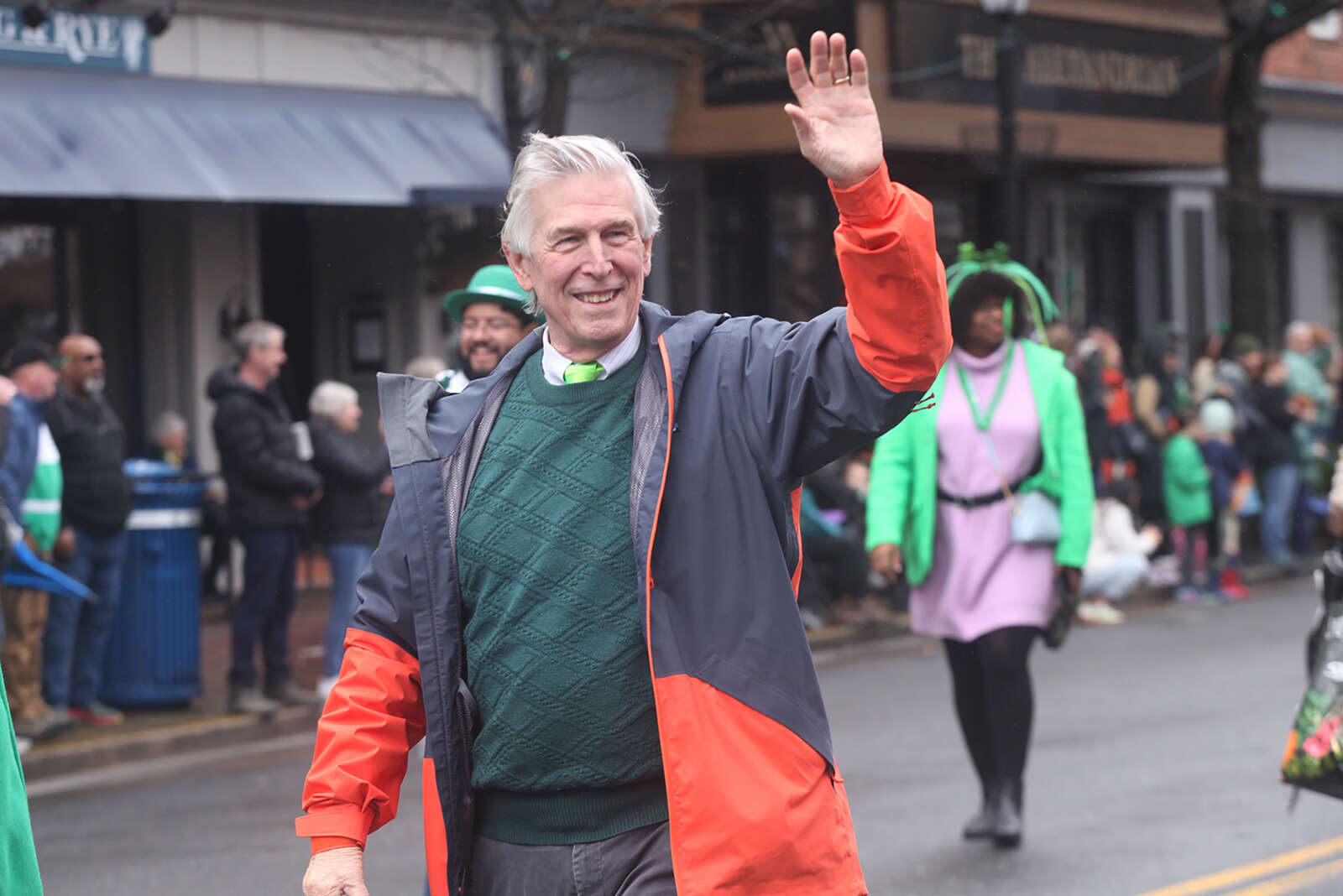
Alexandria is getting $3.5 million in federal funds to pay for public safety, transit, affordable housing and flooding infrastructure projects, Northern Virginia Congressman Don Beyer (D-8th) announced today.
“Even in the minority amid a divided and chaotic Congress, I am laser focused on helping my constituents and benefitting Northern Virginia,” Beyer said in a statement.
Beyer secured a total of $13 million federal funding in the 2024 Consolidated Appropriations Act, which the House of Representatives approved on Wednesday, to pay for 15 projects in Alexandria, Arlington and Fairfax County. The Senate is expected to approve the legislation next week, Beyer’s office said.
The Alexandria projects are:
$1 million for on-route electric transit bus opportunity chargers. The funding would be used to fund the construction and implementation of up to two on-route opportunity fast chargers within the City of Alexandria, which would support charging requirements of a full 100% Zero Emissions Battery Electric transit bus fleet. The chargers would be constructed in strategic locations throughout the City and the DASH bus network to help ensure that the future fleet of 100+ Zero Emissions transit buses can meet the demand of DASH’s 24/7 service, serving the community of Alexandria
$963,000 for the Virginia Tech “Smart Mobility Lab.” The funding would be used to establish Smart Mobility Lab (SML) operations and invest in initial research and technology development where gaps exist to attract and leverage industry engagement. The SML will be sustained in future years through publicly and privately sponsored research from industry and government partners. Some smart mobility technologies that may be deployed in the SML include: a data exchange system for integrating data from various systems deployed in the SML while providing security and appropriate access for research and development opportunities; smart intersection solutions that identify conflicts and improve vulnerable road users’ safety; adaptive lighting on roadways that adjust with changing weather conditions and traffic; implementation of customizable features (like real-time red light patterns changes) to accommodate traffic flow; and the analysis and creation of mobility hubs to connect multiple modes of transportation and make commuting easier.
$670,000 for a pilot program for crime and violence prevention. This supports funding enhanced technology, including In-Car Cameras, Fixed License Plate Readers (LPRs), and Surveillance Trailers, in the City of Alexandria. This funding will assist Alexandria’s law enforcement agency in its ongoing efforts to reduce incidents of violent crime and gun violence in the Alexandria community. The Alexandria Police Department will use these funds to invest in cutting-edge technology and equipment that will significantly enhance its ability to deter, respond, investigate, and successfully prosecute violent crimes.
$850,000 for the restoration of affordable housing at the 1022 Pendleton Street Boarding House. The project will allow the City of Alexandria to work with property owners to preserve unique, affordable housing in our community while renovating a building with historic, cultural and architectural significance. The boarding house currently includes 8 housing units with deeply affordable rents, as well as shared living space and room for the restoration of retail/commercial space original to the property.
Alexandria’s annual George Washington Birthday Parade brought the usual pomp and circumstance befitting the country’s first president.
This year’s parade marshals were the recipients of the prestigious Living Legends of Alexandria award. The theme of this year’s parade was “George Washington: Alexandria’s Living Legend.”
A number of political candidates marched (or rode) in the parade, including mayoral candidates Vice Mayor Amy Jackson and Alyia Gaskins, as well as Sheriff Sean Casey and Clerk of Court Greg Parks. City Manager Jim Parajon also marched, as did his counterpart in the school system, Superintendent Melanie Kay-Wyatt. Former Mayor Allison Silberberg also marched in the parade with the “Coalition to Stop the Potomac Yard Arena.”
Alexandria’s next parade is the St. Patrick’s Day Parade in Old Town on Saturday, March 2.
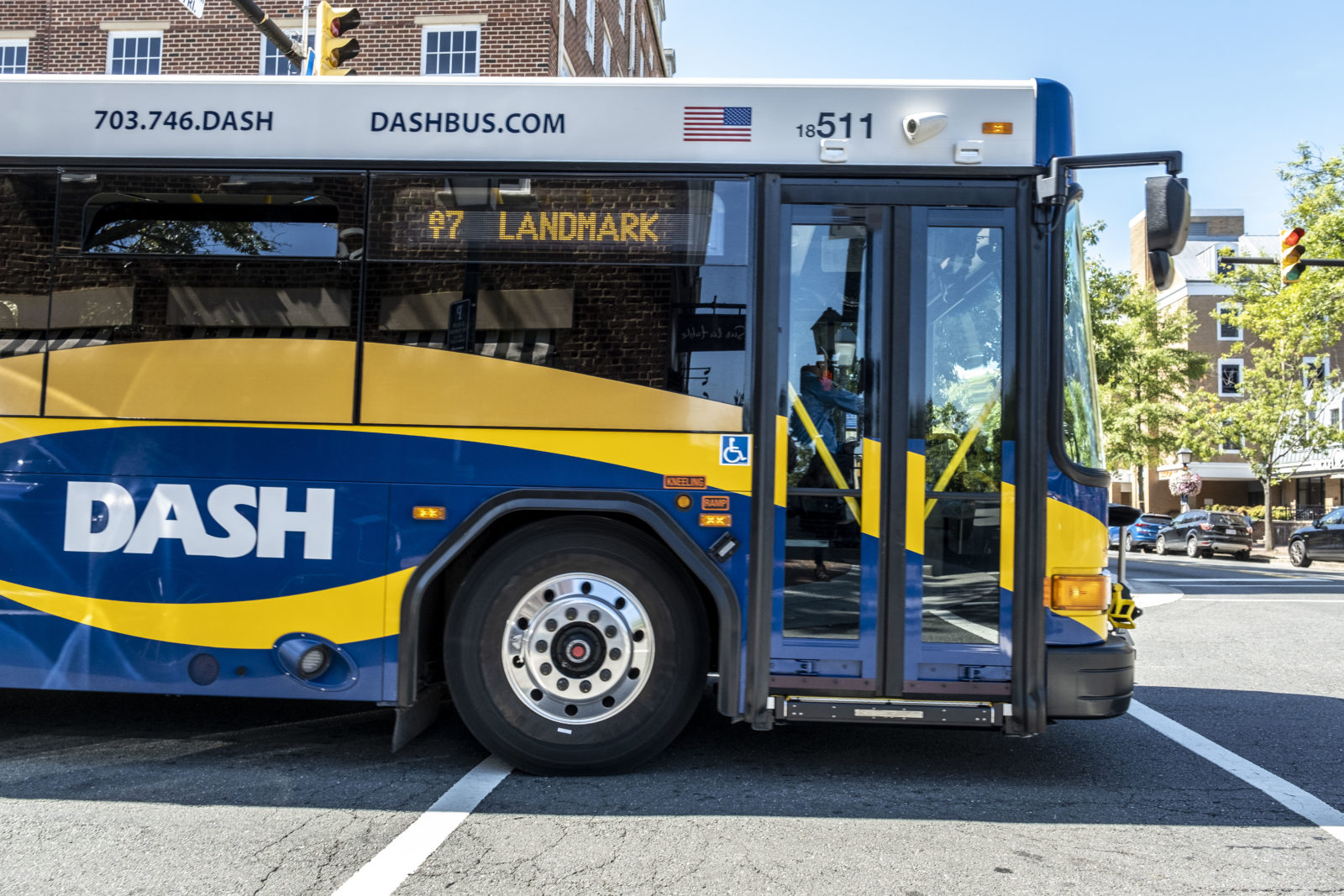
Alexandria’s DASH bus system is seeking state funding for a project to add new information screens inside the city’s buses.
A pilot program would install information screens that would help show things like upcoming stops, transfer connections, service alerts and more.
According to a grant application for $200,000:
This pilot would allow DASH to install two information screens onboard up to 10 buses that would display upcoming bus stops, transfer connections, service alerts, advertisements, and other customer outreach information. These infotainment screens would enhance overall accessibility and ease of use for DASH riders. DASH would be one of the first transit agencies in the state to install such screens on their buses and could install the screens on all buses going forward if the pilot is successful.
The project would require a 20% match from the city with an estimate that supporting the new screens would cost an additional $10,000-$15,000 annually.
Another $100,000 grant application would provide funding for new camera systems on buses to help bus operators see people or objects in blind spots created by the two front pillars on the bus.
“The screens would be mounted on the pillars to effectively remove these dangerous blind spots for bus operators,” the application said. “This could greatly improve bus and pedestrian safety and would promote ongoing Vision Zero objectives.”
The biggest application, though, is for $37 million request for operating assistance for rising labor and fuel costs. According to the application:
Operating assistance to jurisdictions is allocated based on system size and system performance for both DASH and DOT paratransit. Operating costs have increased over the past few years due to labor and fuel costs. The amount the Commonwealth can provide in operating assistance varies annually but has typically been between 20% and 30%.
The grant applications are scheduled for review at a City Council meeting on Tuesday, Jan. 23.
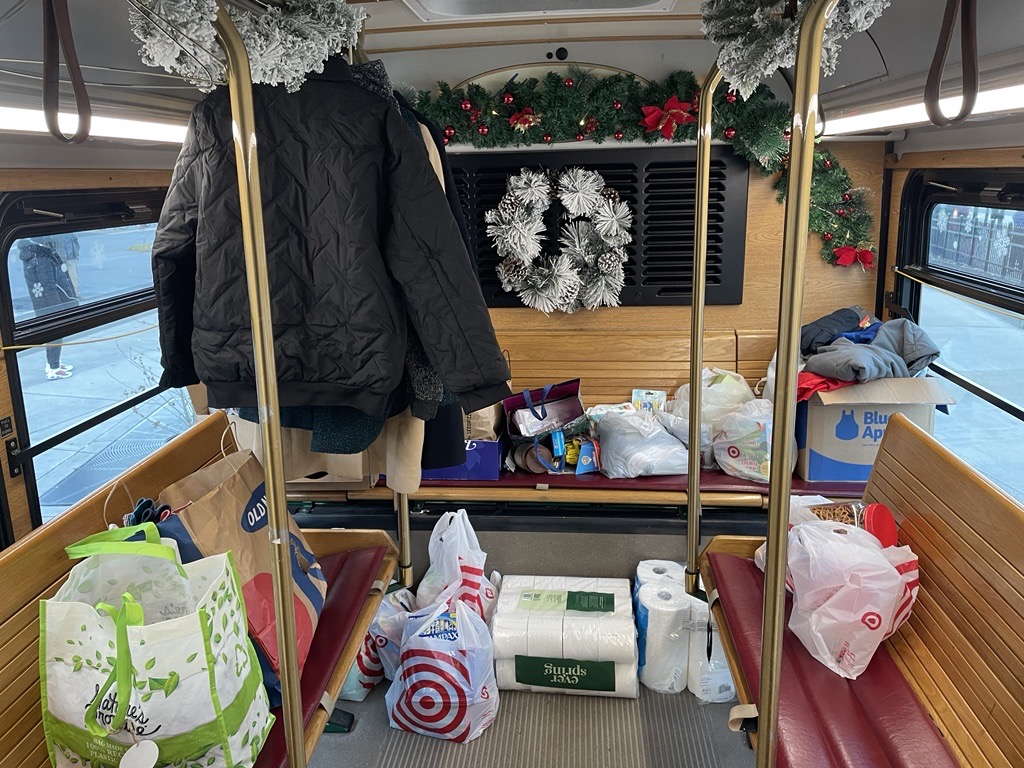
The DASH bus network has had a pretty good year / and this week they’re hoping to spread holiday cheer.
Today’s (Thursday) ‘stuff the bus fundraiser’ will be at the Bradlee Shopping Center / in hopes of giving those in need some supplies for winter.
This bus is collecting clothing and food / and even some toiletries like baby shampoo.
Tomorrow (Friday) it will be at the City Hall/Market Square / from 3-7 p.m. it’ll be there.
Donations can be dropped off at the DASH central hive / that’s located at 3000 Business Center Drive.
Clothing items can be sized for children or their elders / all donations will benefit the Carpenter’s Shelter.
There's still time to help us #StuffTheBus🚍 for Carpenter's Shelter this year! Come see us at Bradlee Shopping Center tomorrow from 11 a.m. to 2 p.m. You can find a full list of donation items and information about donating directly to the shelter at https://t.co/i5uvamO0qC … pic.twitter.com/3QYubfq7g6
— DASH Bus (@DASHBus) December 13, 2023
Photo via DASH/Facebook
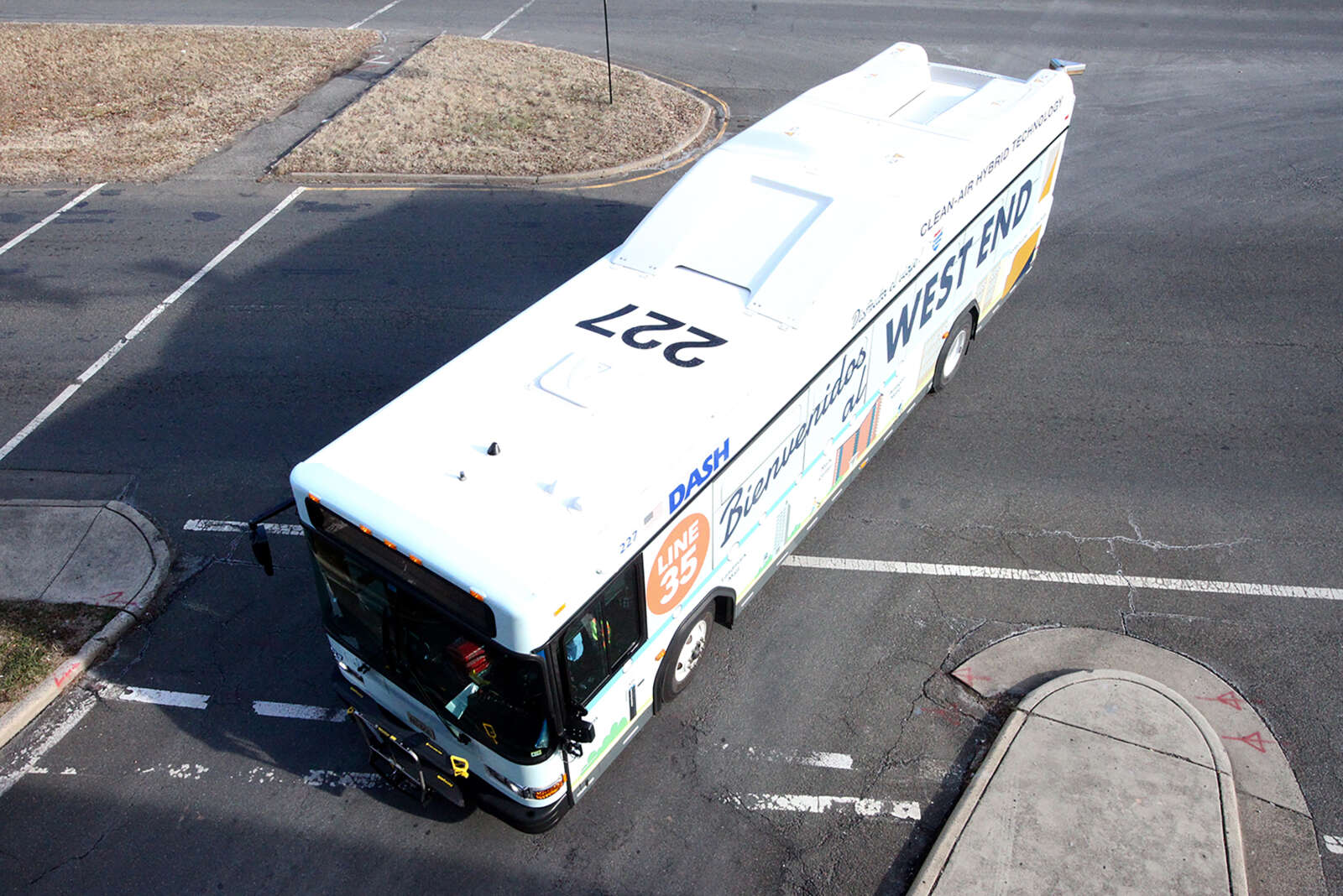
With the reopening of the Dash Transit Center at the future WestEnd development years away, Alexandria is looking to ask Richmond to help pay for $800,000 in temporary bus bays, benches and real-time signage.
On Tuesday, City Council will consider authorizing a $544,000 grant application for a new project through the Virginia Department of Rail and Public Transportation’s Transit Ridership Incentive Program (TRIP). If approved, the city would have to foot the remaining $256,000 to pay for 12 shelters at six bus bays, benches and six electronic real-time signs until construction of the permanent transit center is finished. City staff said Council could also tap into the GoAlex Fund, which is funded by developers.
Alexandria was awarded $13 million in SMART SCALE funding for the transit hub, but the money isn’t available until 2026 and construction is estimated to wrap in 2028.
“Currently, this is a high ridership location and key transfer point with more than 500 boardings per day,” City staff said in a memo. “This funding would allow for proper amenities at a major transfer facility serving multiple local bus routes and two future bus rapid transit corridors until a permanent structure is constructed.”
Melissa McMahon, chair of the city’s Transportation Commission, wrote a letter stating that the commission endorsed the application.
“At its October 18 meeting, the Transportation Commission voted to endorse a grant application for funding of up $800,000 through the DRPT FY 2024 Mid-Cycle TRIP New Passenger Amenities category,” McMahon wrote. “The Transportation Commission supports staff’s proposal to request funding to provide passenger amenities at Landmark until the facility funded through SMART SCALE can be constructed, at which point the amenities can be relocated to other high need areas in the City.”
McMahon continued, “This project supports the Alexandria Mobility Plan strategy to improve the rider experience and will ensure that appropriate amenities are available for this major transfer facility at the opening of Duke Street and West End Transitways. It also provides the opportunity to potentially leverage the new developer funded Transportation Management Plan GoAlex Fund for these amenities.”
Alexandria was previously awarded a TRIP grant from its Zero and Reduced Fare category. The TRIP program launched in 2021 to improve “regional connectivity in urban areas with a population above 100,000 and reducing barriers to transit use by supporting low-income and zero-fare programming.”

Alexandria’s DASH bus network ridership is growing faster than bus networks in Arlington and Fairfax, though not as quickly as local rail ridership.
A report to the Northern Virginia Transportation Commission showed that DASH had a 17% increase in ridership from August 2022 to August 2023.
The total ridership in August 2023 was 1.3 million, nearly double the ART bus ridership and slightly more than half that of the Fairfax Connector. ART bus ridership grew 11% over the last year, while the Fairfax Connector’s ridership grew 15%.
Still, that doesn’t hold a candle to regional ridership of the Metro, which had a 36% ridership growth in the last year to a total of 7.7 million riders on the Virginia lines this past August.
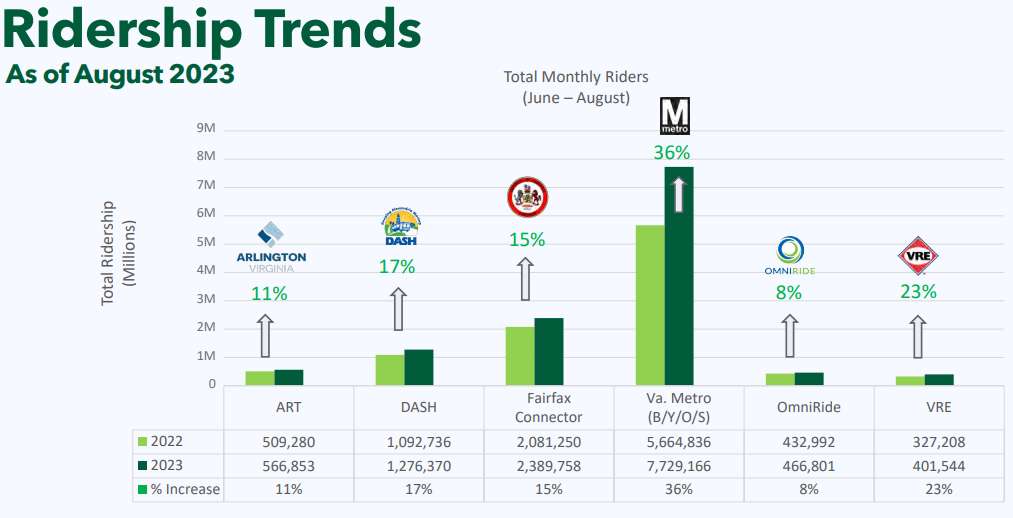
It’s been a banner year in ridership for Alexandria’s DASH bus network. The bus network celebrated record high ridership earlier this year, fueled by a mix of realigning the system to prioritize more frequent service in higher-density corridors and going fully fare-free — though whether that change is permanent is unclear, given the long-term challenge offsetting the lost income presents.
Alexandria’s DASH network has set a record high with 4.5 million boardings in a single year, according to the transportation company.
DASH said in a release that the record high boardings exceeded the previous ridership high of 4.3 million in 2015. DASH credited the success to a mix of taking the network fare-free and realigning the system to prioritize frequent service in higher-density corridors.
“To celebrate this milestone and thank our loyal customers, DASH will host a rider celebration event on the morning of Friday, August 18 at the King Street-Old Town Metrorail Station,” the release said. “The event will begin at 8:30 AM and will feature remarks from DASH and City officials, music, refreshments, and DASH giveaways.”
The turnaround is particularly startling compared to the dip to only 1.5 million riders in FY 2021 when the pandemic battered regional public transit ridership.
According to the release:
Since the launch of the fare-free New DASH Network in September 2021, DASH has seen unprecedented ridership growth that helped it become the first transit agency in the region to return to pre-pandemic ridership levels. In the last year, DASH ridership has continued its meteoric rise with the 451,000 passenger boardings recorded in April 2023 representing the highest ridership total for a single month in agency history. Today, DASH carries more than 15,000 boardings on a typical weekday and 7,000 to 10,000 boardings on Saturdays and Sundays. The 4.5 million total boardings in fiscal year 2023 eclipsed the previous record of 4.3 million in fiscal year 2015.
Still, paying for the network to stay fare-free has proven a challenge. DASH had been collecting around $4 million in fares before the fare-free program went into effect. City staff estimated the DASH subsidy will rise from the current $23.6 million to $45 million annually — barring additional grant funding. The DASH network is also working through the expensive process of converting its fleet to electric.
Photo via DASHbus/Facebook



